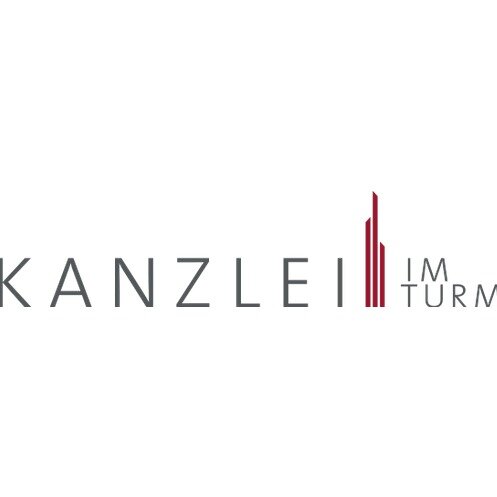Best Tax Increment Financing Lawyers in Winterthur
Share your needs with us, get contacted by law firms.
Free. Takes 2 min.
List of the best lawyers in Winterthur, Switzerland
About Tax Increment Financing Law in Winterthur, Switzerland
Tax Increment Financing (TIF) is a public financing method that is used to subsidize infrastructure and community improvement projects. In Winterthur, Switzerland, TIF is implemented as part of a broader strategy to enhance urban development and stimulate economic growth. The essence of TIF is the capturing of future tax revenues that are expected to increase as a result of the proposed improvements. These incrementally increased revenues are then allocated to fund the project. This financing method is crucial for revitalizing areas that may otherwise struggle to attract private investment.
Why You May Need a Lawyer
Engaging with TIF can be complex, and legal assistance may be required in several scenarios:
- Understanding the Legal Framework: Navigating the intricate laws and regulations surrounding TIF can be challenging, especially for those unfamiliar with Swiss law.
- Negotiating TIF Agreements: Legal counsel can help negotiate terms and ensure favorable conditions in TIF agreements with governmental bodies.
- Compliance and Obligations: Ensuring compliance with local laws and regulations is crucial to avoid sanctions or penalties.
- Dispute Resolution: In case of disputes related to TIF projects, legal representation is often necessary to protect interests effectively.
- Structuring and Financing Projects: A lawyer can assist with structuring the finance appropriately and advise on the implications of different financing options.
Local Laws Overview
Several key aspects of local laws govern TIF in Winterthur, Switzerland. Important considerations include:
- Regulatory Framework: Swiss municipal laws and cantonal regulations define the scope and application of TIF. Approval processes are stringent and require compliance with various environmental and urban planning standards.
- Public Participation: Transparency and public involvement are vital in all stages of TIF projects. Legal frameworks necessitate public consultations and disclosures.
- Financial Arrangements:**: The financing must align with local budgets and economic guidelines, ensuring that the municipality does not face undue financial burdens.
- Taxation and Revenue Allocation: Specific laws dictate how tax increments are calculated and allocated, ensuring that they are used exclusively for the intended purpose.
Frequently Asked Questions
What is the purpose of TIF?
TIF aims to promote economic development in underdeveloped or dilapidated urban areas by using future tax revenues to fund current improvement projects.
How is the tax increment calculated?
The tax increment is the difference between the current tax income of the area and the projected increase resulting from development activities within the TIF district.
Who decides if a TIF district is designated?
The local government of Winterthur evaluates and designates TIF districts based on various criteria including economic need and potential for development.
Can TIF funds be used for any type of project?
No, TIF funds are typically restricted to projects that promote public benefits such as infrastructure, public buildings, and community facilities.
What are the risks associated with TIF?
Risks include insufficient increment revenues to cover the debt, legal challenges, and changes in economic conditions impacting project viability.
Is public consultation required for TIF projects?
Yes, public opinion is an important part of TIF project planning, and local laws require consultations and disclosures to the public.
How can private developers get involved in TIF projects?
Private developers can participate by partnering with the municipality, presenting viable project proposals that align with TIF objectives.
Can TIF affect property taxes?
TIF does not directly affect property tax rates but captures increases in tax revenues to fund development projects.
What is the typical duration of a TIF project?
TIF projects can vary in duration but typically last between 10 to 25 years, depending on project scope and local regulations.
What happens if the projected tax increment is not realized?
If the increment falls short, this may create financial challenges, potentially requiring municipal intervention or re-negotiation of terms.
Additional Resources
For further guidance on TIF, consider reaching out to:
- Local Government: The Municipality of Winterthur provides necessary information and guidelines on TIF projects.
- Legal Professionals: Consulting with tax and finance lawyers can provide personalized insights and detailed legal advice.
- Professional Associations: Swiss Real Estate and Urban Development Associations often organize seminars and release publications that discuss financing methods including TIF.
Next Steps
If you require legal assistance with TIF in Winterthur, consider taking the following steps:
- Research and Identify Lawyers: Look for legal professionals specializing in tax and urban development law.
- Schedule Consultations: Set up meetings with selected lawyers to discuss your needs and assess their expertise.
- Review Documentation: Prepare all relevant documents related to your TIF project for review by your legal counsel.
- Evaluate Legal Proposals: Consider the legal strategies proposed and decide on the course of action that best protects your interests.
Lawzana helps you find the best lawyers and law firms in Winterthur through a curated and pre-screened list of qualified legal professionals. Our platform offers rankings and detailed profiles of attorneys and law firms, allowing you to compare based on practice areas, including Tax Increment Financing, experience, and client feedback.
Each profile includes a description of the firm's areas of practice, client reviews, team members and partners, year of establishment, spoken languages, office locations, contact information, social media presence, and any published articles or resources. Most firms on our platform speak English and are experienced in both local and international legal matters.
Get a quote from top-rated law firms in Winterthur, Switzerland — quickly, securely, and without unnecessary hassle.
Disclaimer:
The information provided on this page is for general informational purposes only and does not constitute legal advice. While we strive to ensure the accuracy and relevance of the content, legal information may change over time, and interpretations of the law can vary. You should always consult with a qualified legal professional for advice specific to your situation.
We disclaim all liability for actions taken or not taken based on the content of this page. If you believe any information is incorrect or outdated, please contact us, and we will review and update it where appropriate.












